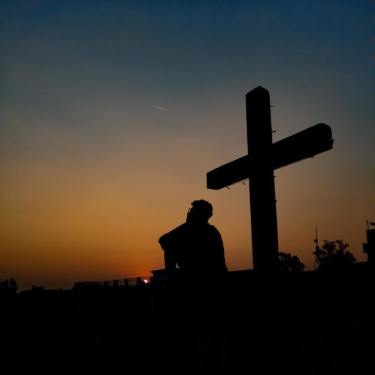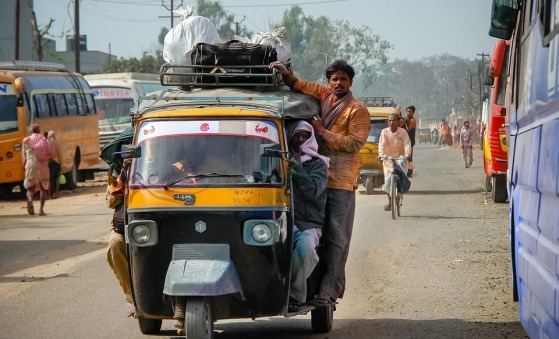
Over 35 locations across Mumbai, Thane and Navi Mumbai witnessed peaceful protests on Sunday as the Christian community mobilised against the Maharashtra government’s proposed Freedom of Religion Bill, scheduled for introduction in the winter session of the state legislature in December 2025.
The Bombay Catholic Sabha (BCS), representing 68,000 believers, organised the demonstrations outside churches. Protesters carried placards reading “My Faith, My Right”, “Don’t Criminalise Compassion” and “Our Faith Our Choice”, calling upon Chief Minister Devendra Fadnavis to withdraw the Bill.
The proposed legislation has raised concerns about constitutional violations and the potential criminalisation of charitable work. Community leaders argue it threatens Article 25, which guarantees freedom of conscience and the right to profess, practise and propagate religion.
BCS spokesperson Dolphy D’Souza called the Bill “a misnomer” that offers no real freedom. “There is no freedom in the so-called Freedom of Religion Bill,” he said, warning it could open the door for surveillance, policing and discrimination against religious minorities.
The protests drew significant interfaith support. At Our Lady of the Rosary Church in Goregaon (West), civic activist Prof Arvind Nigale, Gandhian Jayant Diwan, Rashtra Seva Dal convenor Umesh Kadam and Abu Shaikh from Jamaat-e-Islami joined Christian demonstrators.
Similar laws in other states have faced serious legal challenges. The Supreme Court observed in May 2024 that several provisions of Uttar Pradesh’s 2021 anti-conversion law “may seem to be violative of Article 25” and stayed proceedings in certain cases. In Madhya Pradesh, the High Court declared a key provision requiring prior declaration before conversion as “prima facie unconstitutional” in November 2022.
Speaking to Christian Today, Dr. John Dayal, member of the National Integration Council and Spokesperson of the All India Catholic Union, said: “Anti-conversion laws across India have consistently been used to harass religious minorities, not prevent impunity leading to majoritarian coercion, police bigotry, and mob violence. Maharashtra has long resisted this divisive path. Introducing such legislation now will only criminalise humanitarian work and deepen communal mistrust. The Constitution already provides adequate safeguards against fraud and force. This Bill serves politics, not justice.”
Fr Nigel Barrett, spokesman for the Archdiocese of Bombay, clarified the Church’s position. While not opposed to preventing forced conversions, the Church insists on fair implementation and critical safeguards. The burden of proof must lie with complainants, not the accused, he emphasised. Third-party complaints have led to malicious prosecutions later quashed by the Supreme Court for lacking evidence. He called for stringent penalties against false complaints and clear definitions of terms like “inducement” to prevent misuse.
Auxiliary Bishop Savio Fernandes referenced the Durg case in Chhattisgarh, where two nuns were wrongly victimised, as evidence of how such laws presume guilt rather than innocence.
Census data challenges the premise of the legislation. When Maharashtra was formed in 1960, Christians accounted for 1.42% of the population. By 2001, this had declined to 0.96% despite absolute numbers growing from 560,594 to 1,058,313. During the same period, the Hindu population grew from 32.5 million to 77.8 million. Nationally, Christian population share dropped from 2.44% in 1961 to 2.30% in 2011.
This demographic decline contrasts sharply with rising violence. Incidents against Christians increased from 147 in 2014 to 840 in 2024, according to Raphael D’Souza, past president of BCS and past secretary general of All India Catholic Union.
In an open letter to the Chief Minister, D’Souza questioned whether the Bill serves any purpose beyond appeasing fundamentalist elements. He noted that Maharashtra has long stood as a beacon of secular governance, resisting anti-conversion legislation while remaining unaffected by controversies over forced conversions.
Speaking to Christian Today, D’Souza said, “Most states where this law has been enacted are ruled by BJP, which is influenced by RSS ideology of Hindu Rashtra. The government in Maharashtra is following the dictat of RSS.”
D’Souza outlined specific fears about the Bill’s impact. “We fear interference in prayer services - already occurring in some areas - disruption of charitable work due to suspicion of allurement, violation of our constitutional rights to profess, practise and propagate, and most alarmingly, jail without bail,” he said.
Since Odisha passed the first anti-conversion law in 1967, 11 states have followed with increasingly stringent provisions. Yet despite innumerable FIRs filed against Christian missionaries and numerous attacks on individuals and institutions, conviction rates remain virtually zero. This record suggests the laws have been misused to obstruct charitable and educational work among marginalised communities, D’Souza argued. In states with such laws, evidence shows they increase disharmony and fuel violence.
Schools, hospitals and welfare institutions run by Christian organisations serve people of all faiths. One participant at St Michael’s Church in Mahim explained that their work stems from humanitarian concern, not conversion motives, but under the proposed Bill even charitable service could be labelled inducement.
The BCS warned that ordinary acts of kindness risk being weaponised as evidence. D’Souza said the Bill “risks criminalising acts of kindness like offering food, shelter, education and medical care without discrimination. Every gesture of compassion could be falsely portrayed as an attempt at conversion.”
Vinod Noronha of BCS emphasised the protests aim to awaken civic consciousness, not create division. Former BCS president Rita D’Sa expressed disappointment that instead of promoting interfaith dialogue, the Bill creates suspicion.
Retired Assistant Commissioner of Police Joe Gaikwad defended the community, saying any conversion that occurred was “from hate to love, from sinfulness to salvation.”
Citizens for Justice and Peace, leading the Supreme Court case challenging various state anti-conversion laws, warned that vague terms like “inducement”, “allurement” and “coercion” invite misuse and threaten personal autonomy. The organisation fears Maharashtra’s law could replicate chilling effects seen in northern states, discouraging interfaith marriages, constraining charitable activity and enabling surveillance of minority groups.
The BCS announced continuing campaigns, with the next awareness event scheduled for November 16 at I.C. Colony, Borivali. The organisation plans to network with other religious communities and citizens to defend constitutional rights to freedom of conscience.
D’Souza concluded his letter by reminding the Chief Minister of his responsibility to safeguard all citizens regardless of faith and his duty to protect against misuse of law. He expressed hope that wisdom will prevail when legislators convene in Nagpur.




